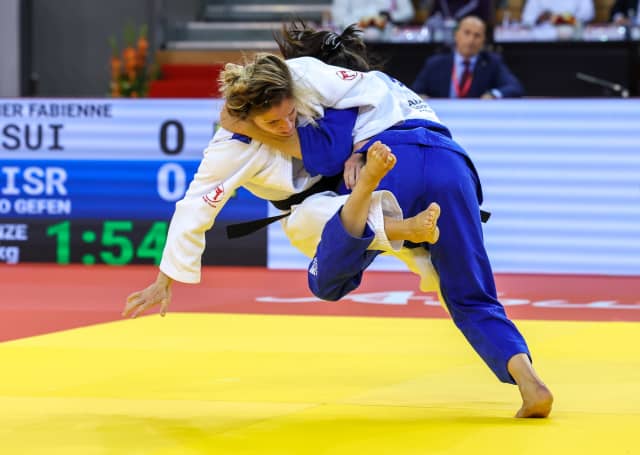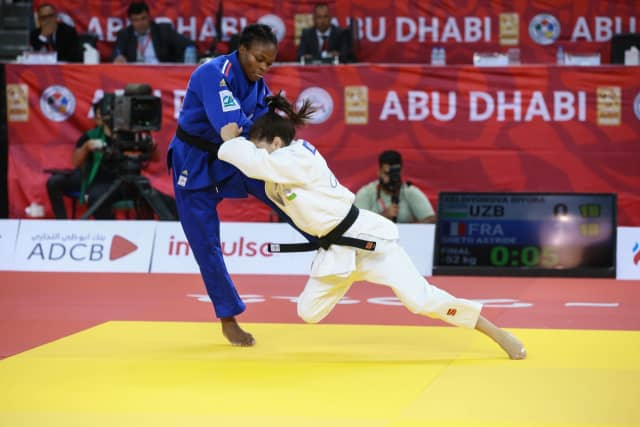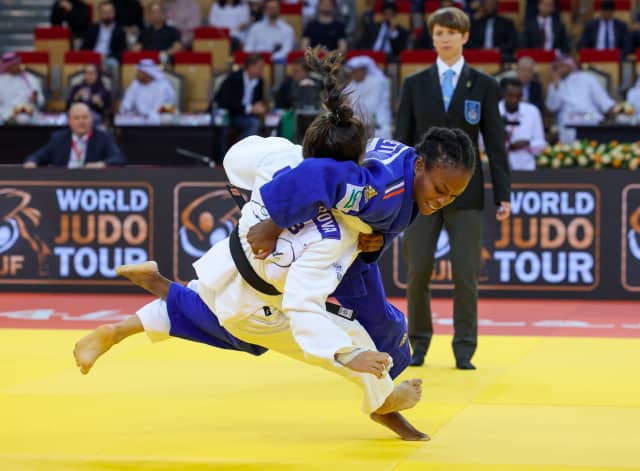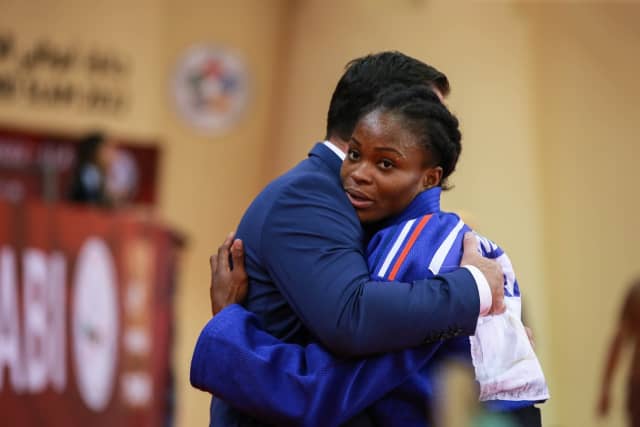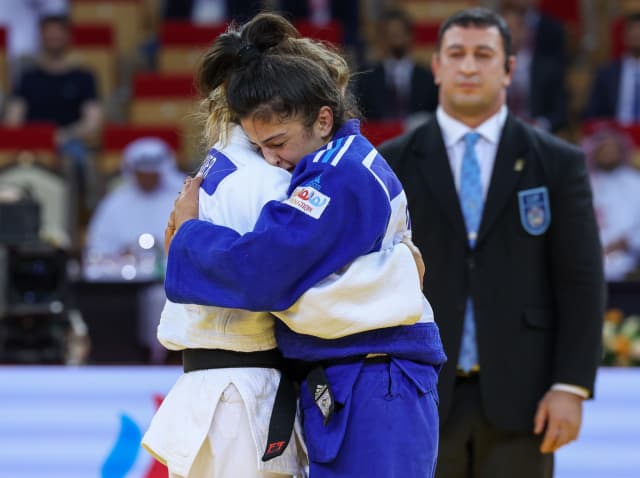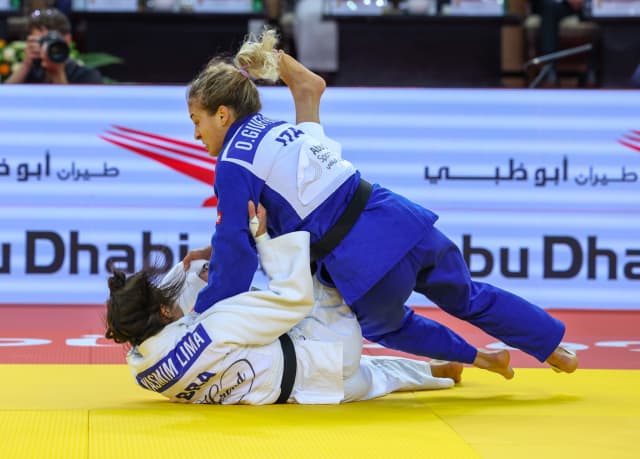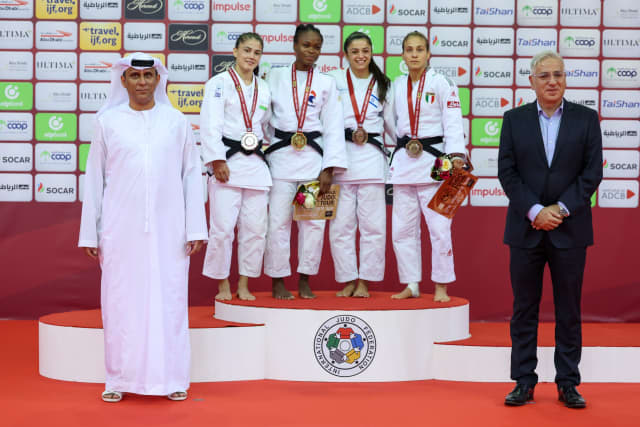The real test for Keldiyorova was in that area where there is already a fight for medals and her opponent, the Italian Odette Giuffrida, had the necessary caliber to make the test a benchmark in the Uzbek's career. What we can say is that Marko Spittka's work is noticeable because Keldiyorova's judo has experienced exponential improvement. Proof of this is how she controlled the arm of the Italian, who is not a beginner, to mark ippon as if she had been practising the same movement for years, like a veteran with a thousand battles behind her. In Abu Dhabi, she left the impression of being in front of a judoka in the process of maturity and with confidence in her own abilities and that is how champions are built.
On the other side of the board, Gefen Primo had to fight harder against the Chinese Ben Liu but she solved her debut with a waza-ari and then osae-komi, as if she were training. In this category the hierarchy was respected. Primo, always calm, won by waza-ari against the German Mascha Ballhaus, who made the Israeli work hard, but it was insufficient, and Primo qualified for the semi-finals, where she met the French Astride Gneto, whose route had been one of the more placid of the morning, without mistakes, without surprises, everything in order for the French. So in order that she gave the Israeli no chance and scored an incontestable ippon to qualify for the final. It was to be an interesting opposition of styles between Keldiyorova and Gneto.
As they were the two fittest women of the day, much was expected of the final. They are both very strong, the impact of each attack is powerful and that's how they started. Less than a minute later, Keldiyorova crystallised what we had been saying since the morning. She is becoming a complete judoka and she went for ippon from all angles, but sometimes she also falls victim to her own enthusiasm and that resulted in two quick shido against her. Gneto has been on the circuit for more years and knows how to manage this type of situation and that's what we saw. It also has to serve as a lesson for the Uzbek, because there are many ways to win but the important thing is to do it. What happened, the lesson, was that Keldiyorova managed to tie with two shido apiece and looked for one more against her rival, lowering her guard. Since Gneto was not born yesterday, she took her third gold for quality and experience. When the Uzbek integrates those parameters she will be one of the best.
Primo didn't like it at all, losing in the semi-finals and so she disputed the bronze as if it were gold. The victim of the Israeli's rage was the Swiss Fabienne Kocher. A waza-ari came and there were less than two minutes for Kocher to react. However, the referees annulled the waza-ari and they reached the golden score period. More than attacking, each cancelled the other but with those attacks it was seen that the one that did not make a mistake would win and everything was very tight. The mistake was Swiss and Primo justified her anger with waza-ari in the end.
Yasmim Lima was what separated the Italian Giuffrida from the bronze. It was the first time that the Brazilian was present in a final block of these dimensions but it is never too late to start. Giuffrida accepted her status as favourite and put Lima on the defensive, but she did not take advantage of the Brazilian's apparent inferiority, which grew over time. Thus they reached golden score. It was not the fight of the century but Lima frustrated Giuffrida because she did not offer any gap through which to attack. When things seem blocked there are two solutions: a brutal ippon or provoke hansoku-make against the opponent. The ippon came in the fourth minute of golden score with a sweep by Giuffrida that showed that it is always better to look for the right gesture than to wait for a referee's decision.

